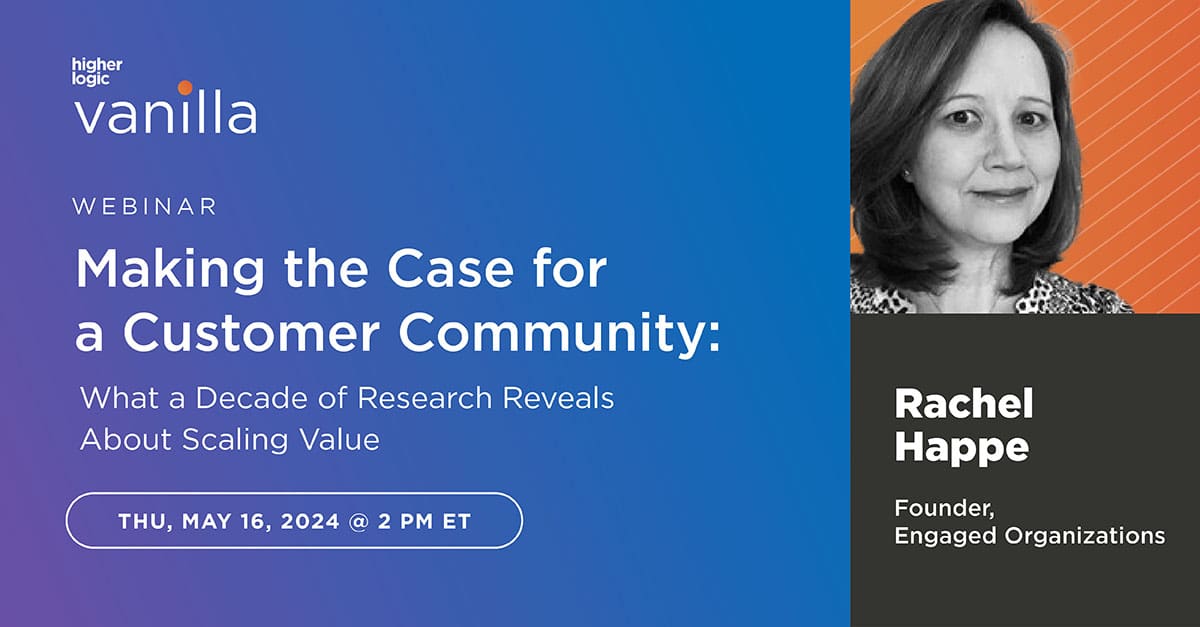
Elevating Customer Success with Community-Driven Strategies: Making Your Customer Events Stand Out
When every resource counts and customers expect nothing but the best, customer success teams find themselves in a tight spot—how do you achieve more with less?
Yet, amid these challenges, there’s a powerful resource that’s often overlooked: the community.
Through this blog series, I’ll explore five ways community-driven strategies can elevate your customer engagement and success.
First up, let’s talk about how tapping into the power of community can attract more customers to your events, whether it’s a deep-dive training or a thought leadership webinar.
Four community strategies to amplify your customer events
1. Ensure your events gain the traction they deserve by making them easy to access
Getting the word out about your events can sometimes feel like shouting into the void. Despite sending emails and other traditional forms of outreach, many events can slip through the cracks.
That’s where community platforms shine. They offer a unique way to boost your events’ visibility. Take our customer success community, Gain Grow Retain, as an example. As soon as members land on the community’s homepage, they’re met with an exciting lineup of upcoming events. This immediate visibility works wonders for boosting awareness which directly impacts engagement.
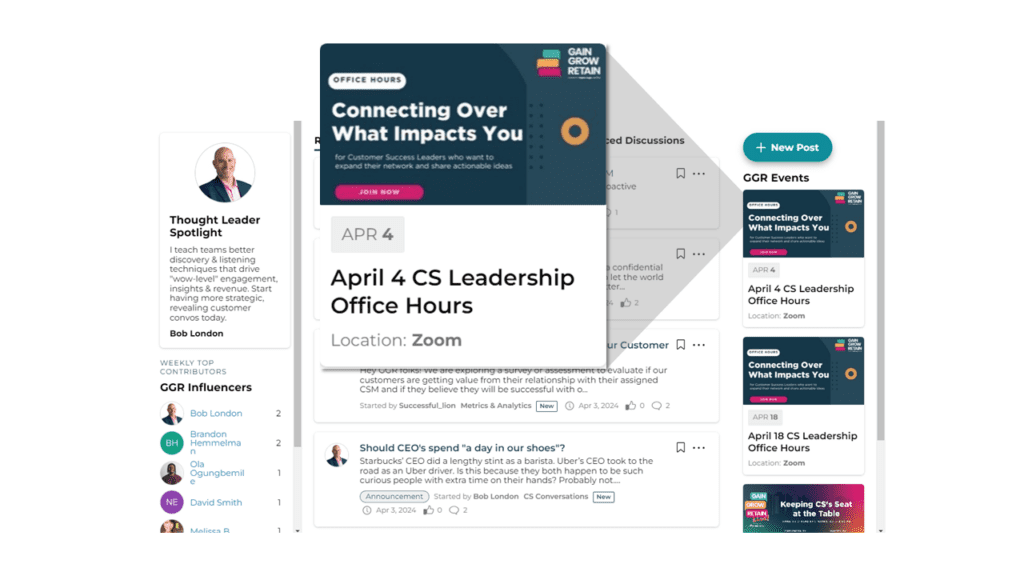
And for those hosting their events through Zoom meetings or webinars, rejoice. With Higher Logic Vanilla’s Zoom integration, registering for and joining an event is as simple as a single click of the “I’m Interested” button. No more navigating through forms and separate landing pages.
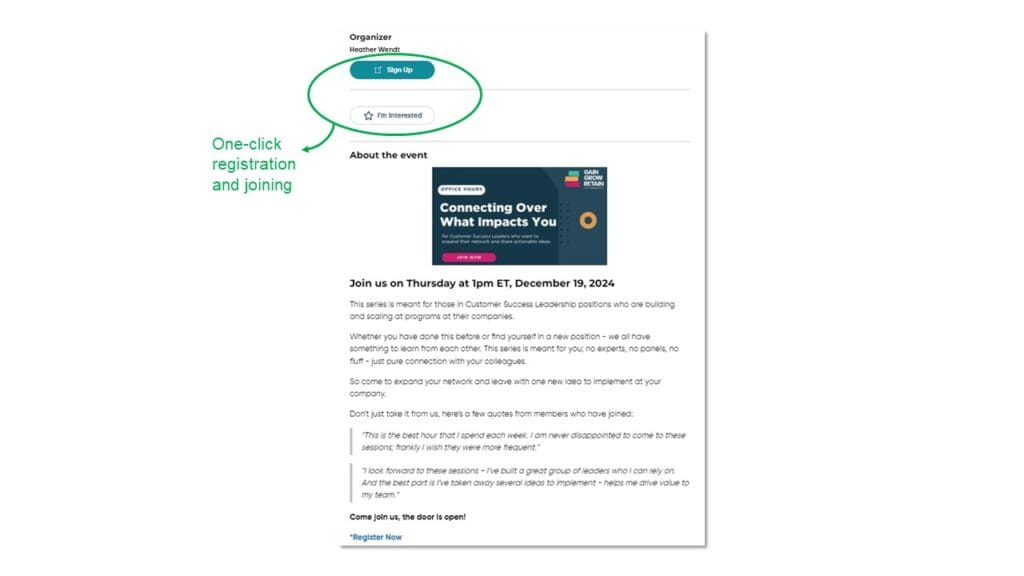
2. Keep your events alive beyond the calendar date
We all know the drill: sign up for an interesting webinar, get swamped, miss it, and then hope to catch the recording later. I, for one, have a dedicated folder for these missed opportunities, always telling myself I’ll catch up “someday.”
By embedding recordings directly in the community, you eliminate the fear of losing that content to an email purge. Plus, viewers can jump right in without the detour to external sites. As our digital lives get busier, it’s easy to forget about replaying content that’s out of sight. Making everything accessible within the community ensures your customers won’t miss out, enabling them to engage whenever it suits them best.
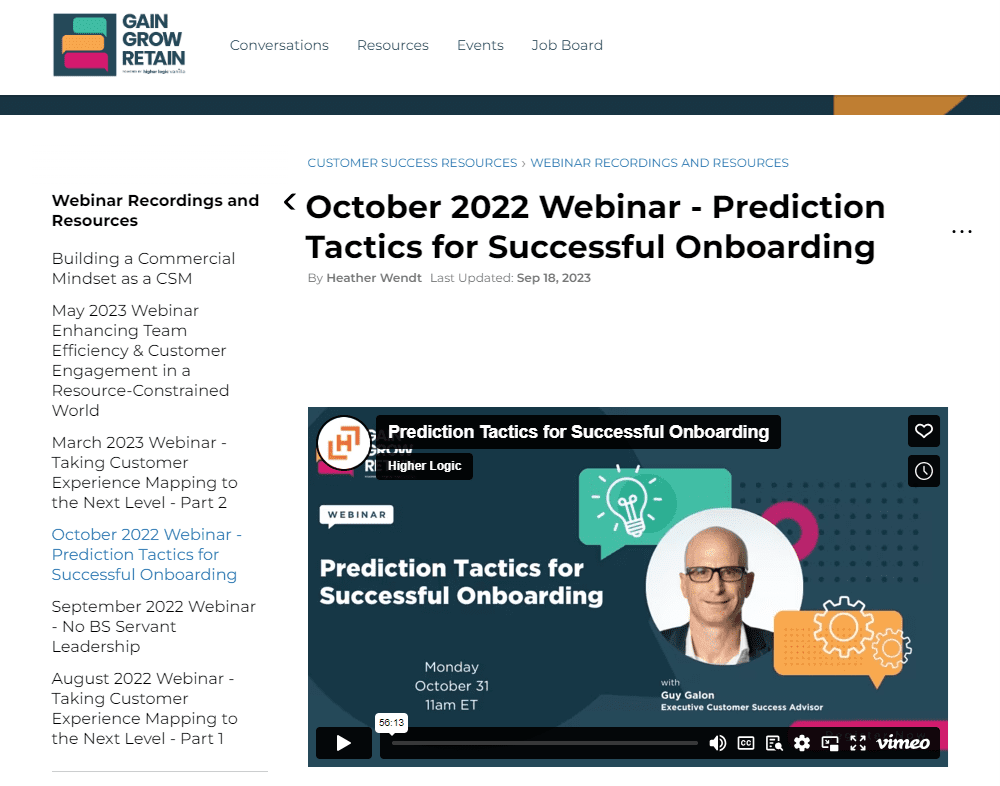
3. Provide quick insights for the time-strapped
Not everyone has the time to sit through an hour-long live webinar, much less watch it later—my collection of unwatched webinars can attest to that.
Creating summary documents is a strategy I’ve found incredibly helpful. By distilling the key takeaways into a more digestible format, like a blog post, you make the content more approachable. If a webinar discusses five main points, why not highlight one in a piece of content and share it with your audience? This way, they can quickly get the gist without committing a huge chunk of their day. And it works!
Each year, more than 400 people register for our Office Hours webinars, yet on average, only 30 manage to attend in real-time. Recognizing this gap, we began creating summary documents of these sessions. Within two years, these summaries have attracted nearly 1,500 views, significantly broadening our reach well beyond those who participate live.
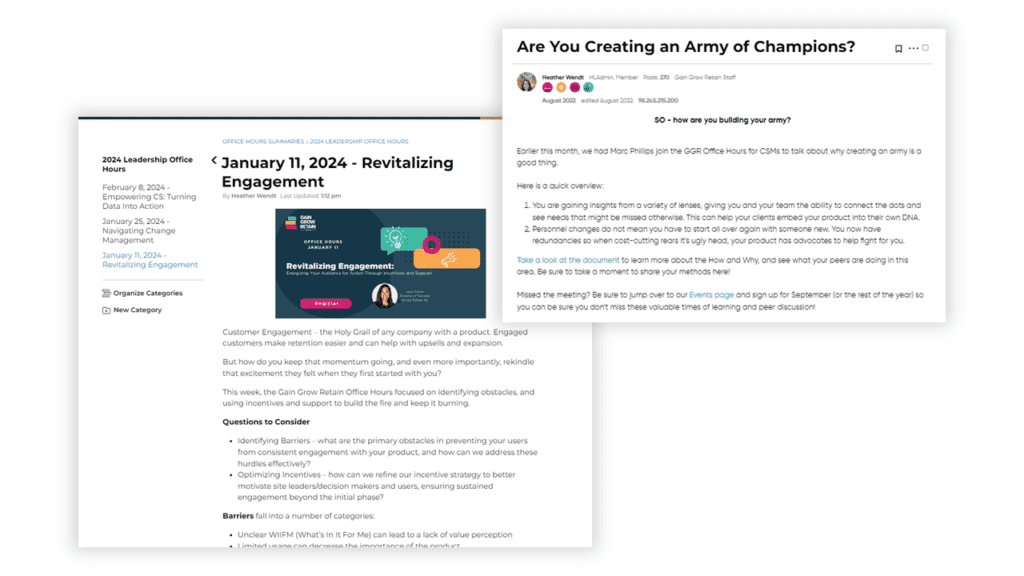
We also recommend breaking down recordings into bite-sized, clearly labeled segments (YouTube can do this for you automatically, by the way!). This lets your viewers zero in on what matters most to them.
4. Keep the conversation going
One of the best parts about having a community is the space it creates for ongoing dialogue. Reflecting on my days in education, I remember attending numerous workshops full of great ideas that I couldn’t wait to try. Yet, translating those ideas to my unique classroom setting was often a challenge.
It’s a common scenario: you come across a great idea and are eager to get started, but then you hit a snag when the context doesn’t quite fit. Without a shared space to exchange ideas, these gems could end up neglected.
That’s the beauty of community discussions. They provide a forum to share experiences, tackle the “how might I adapt this” question, and turn static ideas into something you can actually use.
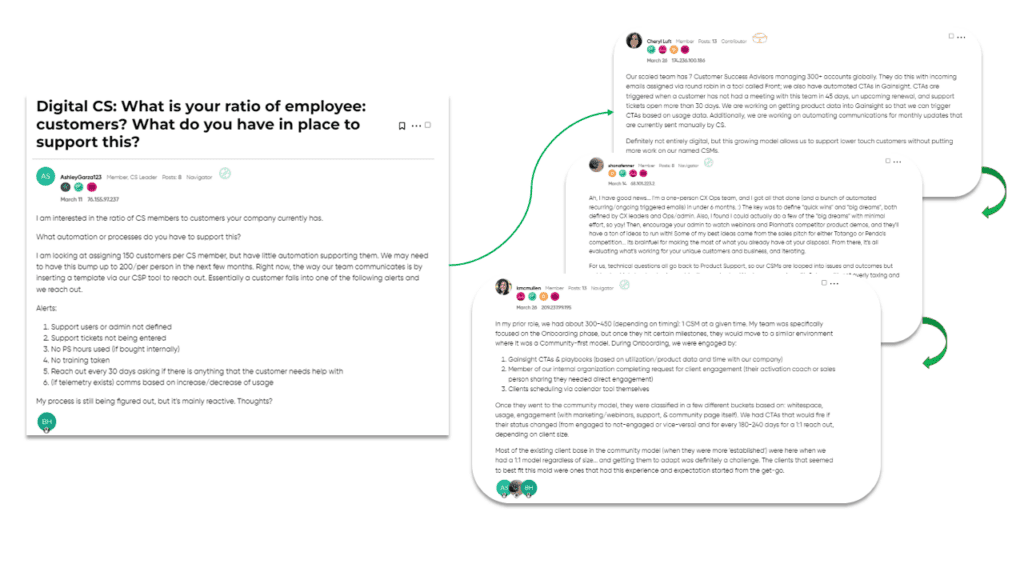
Stay tuned for the next post in this series, where we’ll uncover community-driven strategies to empower your customers to be more self-reliant. If you don’t want to wait, you can watch the full webinar now, “Community-Driven Strategies to Expand Your CS Team.”

